Knowledge Products
The GPSC hosts a digital library featuring practical tools, reports, and case studies. Explore curated resources across thematic areas, filtering by topic or region to find the insights required to advance urban sustainability.
Featured Resource
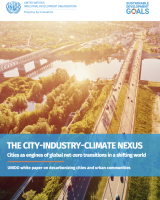
By 2050, almost two-thirds of the world’s population will live in cities, which already consume most of the world’s energy and emit the majority of greenhouse gases. This makes urban areas central to both the causes of climate change and the solutions. The white paper argues that decarbonizing cities is not only environmental policy, but a strategic industrial agenda. It introduces the “city-industry-climate nexus,” where infrastructure, production systems, value chains, and climate action converge. Cities host the industries that supply
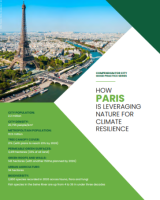
Compendium for City Good Practice Series: How Paris Is Leveraging Nature For Climate Resilience
This report, as part of the Compendium for City Good Practice series, highlights Paris's innovative approach to climate resilience through the strategic integration of nature into urban environments. It offers a comprehensive overview of Paris's strategy on urban nature, showcasing how the city is integrating biodiversity into planning, leveraging green spaces, biodiversity corridors, and sustainable landscaping to mitigate the impacts of climate change. The report serves as a valuable resource for cities worldwide seeking to emulate Paris's successful model of
All Knowledge resources
Explore the GPSC’s constantly growing library of knowledge resources, curated from cities across the world.

Building Back Stronger: Urban Resilience Through Post-Conflict Reconstruction
Rebuilding cities and towns after protracted conflict is a more common occurrence than many would find acceptable. It is also

Cities have the power to stimulate and harness culture, creativity and innovation for local development. Culture and creativity are invaluable
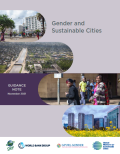
Climate change is set to exacerbate existing inequalities across regions and negatively impact already-vulnerable populations: the urban poor will be
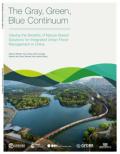
Such solutions have the potential to integrate natural habitats, processes, and services as part of a coherent and holistic approach
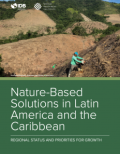
Nature-Based Solutions in Latin America and The Caribbean: Regional Status and Priorities for Growth
This paper discusses how the Latin American and Caribbean region is on the verge of a transition from experimenting with
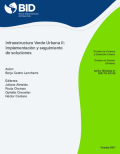
Urban Green Infrastructure II: Implementing and Monitoring (Spanish)
This publication is part of a series of three papers exploring the different aspects of urban green infrastructure solutions. This
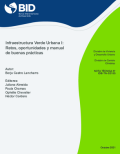
Urban Green Infrastructure I: Challenges, Opportunities and Good Practices (Spanish)
This publication is part of a series of three papers exploring the different aspects of urban green infrastructure solutions. This
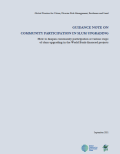
Guidance Note. Community Participation in Slum Upgrading
With its focus on community participation, this Note helps to promote participatory slum upgrading in their dialogue with the client

COVID-19 Vaccination and Municipal Waste Management. Technical Brief
There are over twenty serious vaccine preventable diseases with immunization estimated to save 4-5 million deaths annually. Typically, individual vaccination
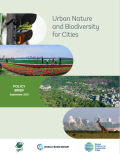
Urban Nature and Biodiversity for Cities. Policy Brief
One important way for urban leaders to rise to today’s challenges is to bring biodiversity and nature into urban design


